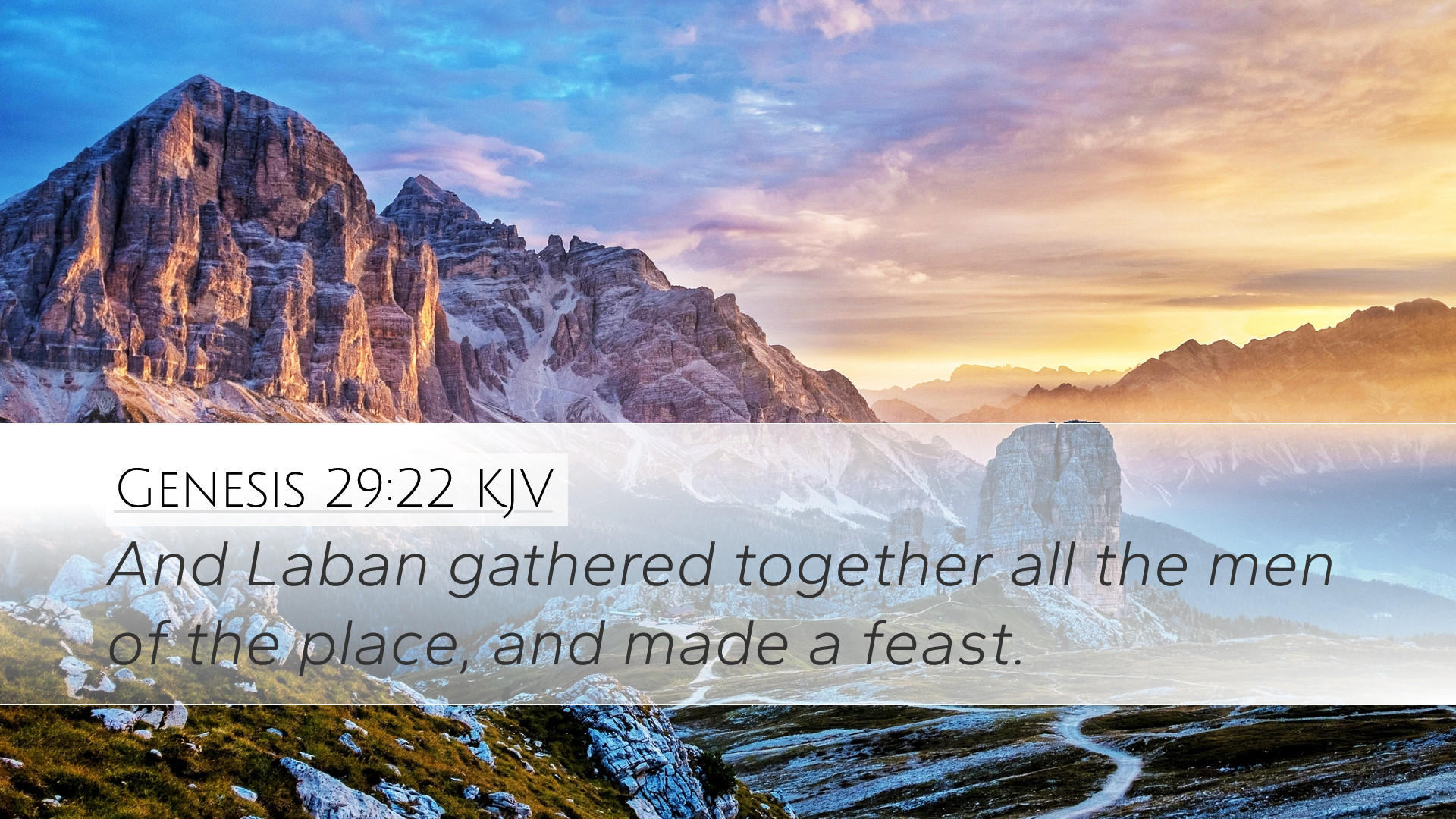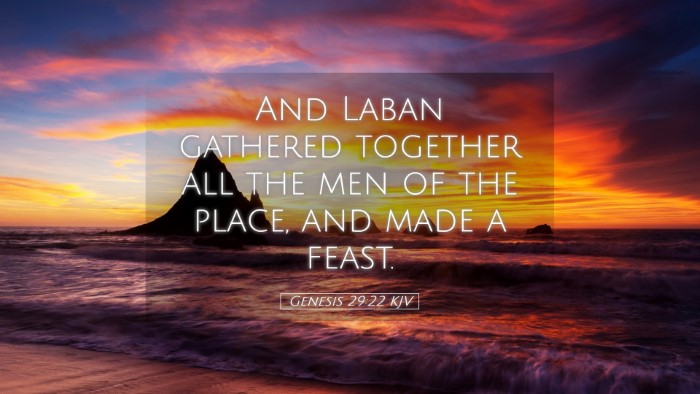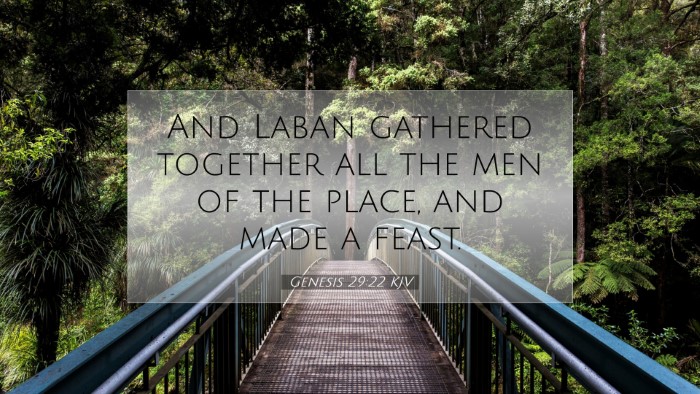Commentary on Genesis 29:22
Genesis 29:22 reads: "And Laban gathered together all the men of the place, and made a feast." This verse marks a notable point in the narrative concerning Jacob and his relationship with Laban, highlighting themes of hospitality, cultural practices, and the unfolding consequences of human relationships. This commentary draws insights from various public domain sources, including those by Matthew Henry, Albert Barnes, and Adam Clarke.
Context and Setting
This passage occurs within the broader narrative of Jacob’s life, particularly during his time in Haran after fleeing from Esau. It takes place following Jacob's encounter with Rachel, where he falls in love with her. The promise of a wedding celebration, illustrated by Laban's assembly of the local men, signifies the importance of community and festivity in ancient Near Eastern marriages.
Insights from Matthew Henry
Matthew Henry comments on the significance of Laban's actions, suggesting that the feast serves to signify Laban's hospitality and the celebration of the union. He notes the cultural importance of wedding feasts in the patriarchal society, where communal involvement reflects both the joy of the occasion and the social expectations of the time. Henry emphasizes that Laban's motives, while seemingly hospitable, are complicated by his opportunistic nature as seen in later chapters.
The Nature of Hospitality
Hospitality was a critical value in the ancient world. Henry points out that such gatherings were not only for joyous occasions but also served as a means of establishing and maintaining social ties. Laban's actions, though generous on the surface, foreshadow forthcoming events where his true character will be revealed through his interactions with Jacob. The gathering indicates a strong cultural ethos where family and connections are celebrated.
Insights from Albert Barnes
Albert Barnes expands on the gathering itself. He highlights that it reflects the customs of the time and the importance of feasting in covenant communions. Barnes notes that Laban's preparation for the feast indicates his readiness to solidify Jacob's commitment while simultaneously entangling him in the complexities of his household.
Theological Implications of the Feast
The feast in Genesis 29:22 serves as a significant backdrop for the ensuing events, particularly the deceit that Laban perpetuates regarding the marriage. Barnes points out that the festivity masks the underlying deception. Theologically, it suggests that appearances can be misleading—a theme prevalent throughout the scriptures. This highlights the notion that human intentions often contrast with divine plans.
Insights from Adam Clarke
Adam Clarke provides an in-depth analysis of Laban's character through this verse. He points out that the gathering of men could indicate Laban’s desire not only to celebrate but also to assert his authority and influence within the community. Clarke comments on the dynamics of power and how Laban's role as a patriarch impacts Jacob's position.
The Role of Community
Clarke emphasizes the role of community in this narrative. The feast represents a vital function in maintaining social cohesion within the local culture. He explains that such gatherings were essential not just for celebration but also for establishing alliances and fostering relationships. In the broader biblical context, Clarke points to how God often uses communal events to advance His purposes, and here, Laban’s feasting leads to a pivotal moment in Jacob's life.
Thematic Reflections
Combining insights from these commentaries helps to illuminate several key themes in Genesis 29:22:
- Hospitality and Community: The event underlines the significance of communal relationships and the practice of hospitality, which are central to Jewish culture.
- Deception and Foreboding: The celebratory atmosphere contrasts sharply with the impending deception, suggesting a deeper narrative of trust and betrayal.
- Character Revelation: Laban’s gathering foreshadows his forthcoming actions, establishing a pattern of behavior that will have significant implications for Jacob.
- Cultural Norms: The context reveals the cultural norms of marriage and familial obligations, portraying how these influenced the characters’ decisions.
Conclusion
Genesis 29:22 serves as a foundational verse that encapsulates pivotal themes of human relationships marked by cultural practices of hospitality, communal bonds, and the complex motivations of individuals like Laban. The insights from Reformed theologians and scholars provide a richer understanding of this passage, offering valuable lessons for contemporary readers regarding the nature of trust, the importance of community, and the ever-present potential for deception within human interactions. As pastors, students, theologians, and Bible scholars reflect on this verse, they are encouraged to consider both its immediate context and its broader implications within the biblical narrative.


